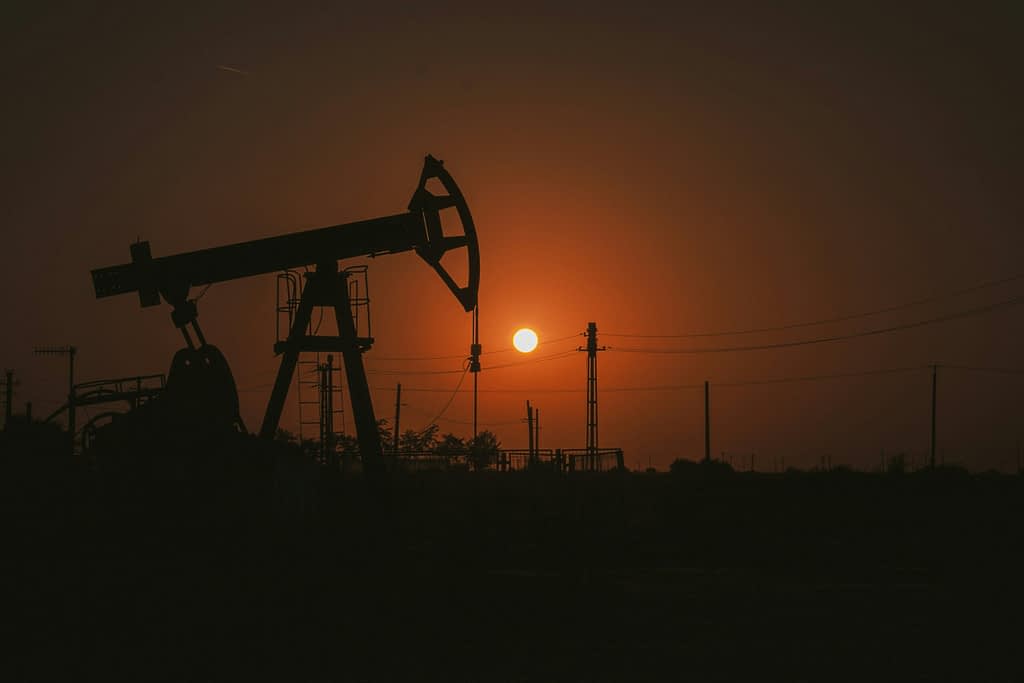Tensions between the USA, Iran, and Israel have reached a critical point after Bloomberg and Reuters announced preparations for American military action against Iran. Oil markets are responding with sharp price increases, while analysts search for promising sectors in the current market environment.
Breakthrough Events Transform Global Markets
The current conflict escalation brings unprecedented market challenges and opportunities. Israeli strikes on Iranian military facilities triggered a retaliatory wave of more than 150 ballistic missiles and 100 unmanned aircraft. This development forces energy giants like Shell to reassess their regional operations.
Shell publicly announced it would halt oil imports from the region if Iran blocked the Strait of Hormuz. This strategic waterway handles 20-25% of global oil and liquefied natural gas shipments, making it a critical point for global energy security and commodity price stability.
Energy and Defense Sectors Respond to Rising Tensions
Experienced analysts monitor current volatility and identify sectors with historical resilience during regional crises:
Energy Sector as Resilient Portfolio Segment
- Oil companies: ExxonMobil, BP and other energy firms are experiencing growth due to higher oil prices
- LNG futures: Expected price increases for liquefied gas amid supply disruptions
- Renewable sources: Diversification trend in energy sources
- Energy infrastructure: Companies operating pipelines outside risk zones
Defense Industry Benefits from Rising Market Tensions
- Lockheed Martin and Boeing: Increased demand for military technology
- Defense system suppliers: Expected growth in defense budgets
- Cybersecurity: Growing emphasis on infrastructure protection
- Satellite technology: Key role in modern conflicts
Market Volatility: Sector Analysis with Growth Potential During Crisis
Market analysis experts observe diversified movements across sectors. Historical data shows resilience in certain economic areas during geopolitical crises.
Defensive assets show standard growth during geopolitical instability:
- Gold as traditional protection against inflation and market volatility
- US Treasury bonds offering capital stability
- Japanese yen strengthening during periods of heightened risk
- Swiss franc as alternative defensive currency
Commodity markets respond to supply chain disruptions:
- WTI and Brent oil with potential growth to $120-150 per barrel
- Natural gas with significant growth in European hubs
- Precious metals including palladium and platinum
- Agricultural commodities sensitive to fertilizer supplies
Risk Factors and Warning Signals for Analysts
The current situation presents critical risks for global markets. A Strait of Hormuz blockade could cause oil prices to rise 7-14% within days with cascading effects on global inflation.
The Pentagon has elevated readiness in the CENTCOM region and moved naval assets to open waters, indicating preparation for multi-domain conflict.
Key indicators for monitoring:
- Satellite imagery of military deployments
- Official statements from Pentagon and Iranian military leadership
- Tanker movements in the Persian Gulf
- Changes in insurance rates for maritime operators
Long-term Analysis and Market Outlook
Geopolitical analysis experts predict the crisis may last months to years, creating structural changes in global markets. Diversification toward less exposed regions is becoming a key trend.
China and India continue importing Iranian oil, but these flows face increased risk. European and American policymakers are considering coordinated sanctions that could further destabilize the situation.
Analysts should monitor not only military movements but also central bank monetary policy, which will need to respond to potential inflationary pressures from higher energy prices.




